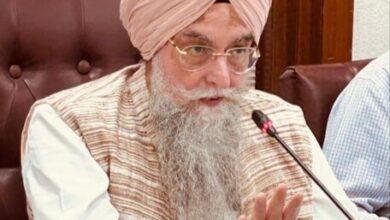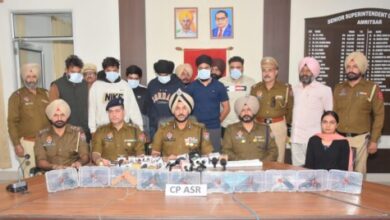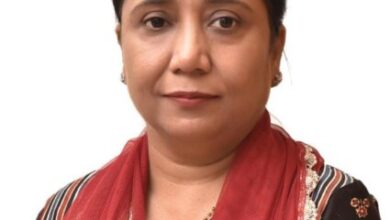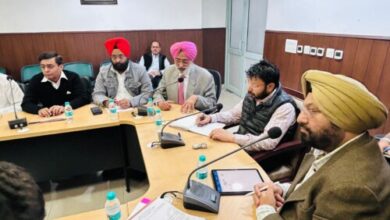PUNJAB HEALTH MINISTER INAUGURATES THREE-DAYS NATIONAL WORKSHOP ON WHO-MPOWER
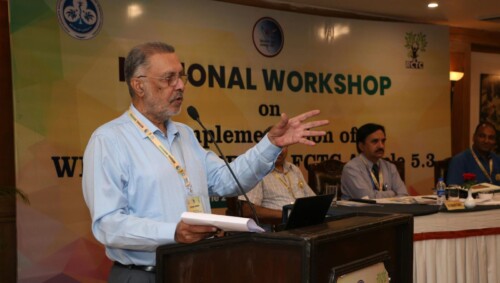
*PUNJAB HEALTH MINISTER INAUGURATES THREE-DAYS NATIONAL WORKSHOP ON WHO-MPOWER*
*— PUNJAB HAS DONE EXEMPLARY WORK IN TOBACCO CONTROL INCLUDING RECENT BAN ON HOOKAH BARS IN THE STATE: DR BALBIR SINGH*
*— 865 VILLAGES IN PUNJAB DECLARES THEMSELVES AS TOBACCO- FREE, SAYS DR BALBIR SINGH*
*— PUNJAB GOVT COMMITTED TO MAKING PUNJAB A TOBACCO FREE STATE AS PER DIRECTIONS OF CM BHAGWANT SINGH MANN*
*— LAUDS EFFORTS OF RCTC TEAM IN CONTROLLING TOBACCO IN STATE*
CHANDIGARH, June 19:
Amidst the ongoing campaign to make Punjab a tobacco free state as per the directions of Chief Minister Bhagwant Singh Mann, Punjab Health and Family Welfare Minister Dr Balbir Singh said that the state of Punjab has done exemplary work in tobacco control including recent ban on hookah bars in the state.
Dr Balbir Singh was addressing the gathering after inaugurating the three-day National Workshop on ‘Implementation of WHO-MPOWER and Framework Convention on Tobacco Control (WHO FCTC) Article 5.3’ organised by the Resource Centre for Tobacco Control (RCTC), Department of Community Medicine & School of Public Health, PGIMER Chandigarh, and supported by Vital Strategies. At leat 35 delegates from 12 different states are here to participate in this workshop organised at Hotel Mountview here.
The Health Minister informed the gathering that Punjab was the first State in the country to constitute an Empowered Committee to implement WHO FCTC Article 5.3. Punjab was also the first state to declare E -Cigarettes as an unapproved drug under Drugs & Cosmetics Act, he added.
He said that in the state, a total of 865 villages have declared themselves tobacco free villages after passing the resolution by Panchayats.
Dr Balbir Singh congratulated the RCTC team for their leadership in tobacco control since 2018 and for organising this crucial workshop. He also released the 29th edition of the Tobacco-Free Times, a theme-based newsletter of RCTC, which has compiled best practices of digital interventions in tobacco control in the country.
Prof. Sonu Goel, Department of Community Medicine and School of Public Health and Director of RCTC, elaborated on the status of WHO FCTC Article 5.3, the work being done by different states to stop tobacco use, and the importance of learning from these efforts.
He emphasised strengthening tobacco control through a whole-of-government approach, enhancing networking and partnerships, and detailed the resources available through the RCTC, including online courses and publications. He also highlighted the creation of a Tobacco Endgame Hub, aimed at developing state-specific policies on Article 5.3 and establishing state-level monitoring mechanisms.
Dr L Swasticharan, Additional Deputy Director General & Director EMR, Ministry of Health and Family Welfare, Government of India, discussed the critical importance of Article 5.3 and the need for such workshops to accelerate its implementation.
Dr Rana J Singh, Director of Vital Strategies, discussed the burden of tobacco in India, its economic impact, and the necessity of stopping its spread through effective policy enactment and implementation.
Various dignitaries who attended the workshop included Dr Rakesh Gupta, President of the Rajasthan Cancer Foundation, Mr Praveen Sinha, and Dr Shivam Kapoor, Technical Advisor at Vital Strategies.

